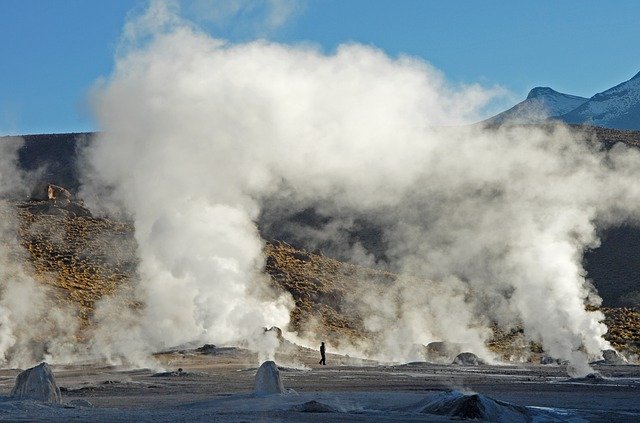
Eden Announces $3.8M ARPA-E OPEN 2021 Award to Develop Next Generation Geothermal Stimulation Technology
Award supports Eden’s development of Electrical Reservoir Stimulation (ERS) technology to improve renewable geothermal power generation efficiency, save water, and unlock 100+ GWe baseload power potential of Enhanced Geothermal Systems (EGS)
Sub-Recipients on Award:
Massachusetts Institute of Technology (MIT) and Idaho National Laboratory (INL)
SOMERVILLE, Mass.–(BUSINESS WIRE)–Eden, a geoscience technology development company, announced today that it has been selected to receive $3,796,672 in federal funding from the U.S. Department of Energy Advanced Research Projects Agency-Energy (ARPA-E) for a project titled “Electro-Hydraulic Fracturing of Enhanced Geothermal Systems.” The funding is part of the ARPA-E OPEN 2021 program, which prioritizes funding technologies that support novel approaches to clean energy challenges. Eden will develop a novel electromagnetic reservoir stimulation technology to access a larger reservoir volume to maximize heat recovery from geothermal systems, while saving billions of gallons of water when compared to traditional hydraulic fracturing methods.
“Successful stimulation of next generation geothermal reservoirs will be necessary to improve heat transfer efficiency and drastically increase power generation,” said Paris Smalls, CEO and Co-founder of Eden, and Lead Principal Investigator (PI) for the ARPA-E OPEN 2021 award. “Current hydraulic fracturing techniques, which had tremendous success in the oil and gas industry, have been mostly unsuccessful in stimulating geothermal reservoirs due to the extreme pressure and temperature conditions downhole. We are developing a radically different approach to reservoir stimulation, which utilizes high-voltage electricity as the main mechanism to increase reservoir permeability. This technology complements recent innovations in geothermal reservoir drilling, since drilled wells will need to be successfully stimulated to achieve maximum net power output per well.”
Eden’s ARPA-E OPEN 2021 award will be supported by world class researchers in the MIT Earth Resources Laboratory (MIT-ERL), MIT Civil and Environmental Engineering Department (MIT-CEE) MIT Plasma Science and Fusion Center (MIT-PSFC), and Idaho National Laboratory (INL). These institutions will assist with efforts to study the ERS technology in the lab and numerical model environments and develop custom power equipment for field demonstrations of the technology.
“In this project, I will develop a new module within the INL MOOSE-based FALCON simulator to numerically model electrical stimulation so that we can explicitly simulate the whole processes of the proposed technology and predict the amount of heat energy we can tap from the subsurface,” said Dr. Wencheng Jin, Research Scientist at INL and Co-PI of the project. “I’m excited to be part of the Eden-MIT-INL team on this gamechanging technology for Enhanced Geothermal Systems.”
“I’m excited to be working with Eden and the rest of the team on a potentially revolutionary technology for Enhanced Geothermal Systems power generation and to use my pulsed-power expertise to tackle a new challenge.,” said Dr. Jack Hare, Assistant Professor of Nuclear Science and Engineering at MIT and Research Scientist on the project.
“It’s an exciting moment to see a doctoral student rise to this level of success as a researcher and entrepreneur, taking his research from the lab to the real world”, said Dr. Herbert Einstein, Professor at MIT-CEE, PhD advisor of Paris Smalls, and Co-PI on the project.
Successful development of the technology will be essential to global renewable electrification efforts and 2050 net-zero decarbonization goals.
“In my home country of Saudi Arabia, continental rifting along the Red Sea has created volcanic “Harratsi” that are accessible for power grade geothermal energy production.,” said Eden Co-founder Ammar Alali. “Our new stimulation technology has widespread implications to meet decarbonization goals in the United States as well as my home in the MENA region.”
ABOUT EDEN
Eden GeoPower Inc. (“Eden”) is developing a novel “Electrical Reservoir Stimulation” technology to increase subsurface permeability with minimal environmental impact. Market applications include geothermal heat recovery, increased fracture volume for in-situ mining, increased CO2 injectivity during carbon sequestration, and other subsurface applications. Eden is headquartered at Greentown Labs in Somerville, MA, the largest clean technology incubator in North America. The company is supported by Good Growth Capital, Ameren, NSF-SBIR, and DOE ARPA-E. For more information, visit www.edengeopower.com.
ABOUT IDAHO NATIONAL LABORATORY
Idaho National Laboratory developed the Multiphysics Object-Oriented Simulation Environment (MOOSE) numerical framework to enable simulation of coupled multiphysics problems in an integrated manner. FALCON (Fracturing And Liquid CONvection) is the MOOSE-based software that simulates coupled processes in the subsurface. FALCON is the reference simulator used at Utah FORGE, the DOE underground field laboratory for testing novel Enhanced Geothermal Systems technologies.
Battelle Energy Alliance manages INL for the U.S. Department of Energy’s Office of Nuclear Energy. INL is the nation’s center for nuclear energy research and development, and also performs research in each of DOE’s strategic goal areas: energy, national security, science and the environment. For more information, visit www.inl.gov.
ABOUT ARPA-E
Since its founding in 2009, ARPA-E has provided $2.93 billion in R&D funding, and ARPA-E projects have attracted more than $7.6 billion in private sector follow-on funding to commercialize clean energy technologies and create sustainable clean energy jobs. Previous ARPA-E awardees have also gone on to achieve breakthroughs in commercializing a variety of energy solutions, including in the development of transformative solar, geothermal, batteries, biofuels and advanced surface coating technologies. Learn more at https://arpa-e.energy.gov/open-2021.
i The Harrat comprises volcanic fields formed by tectonic activity from the Oligocene through to the Quaternary period. It is the largest of several volcanic fields on the Arabian Plate, containing more than 800 volcanic cones and around 140 dikes. It is known to have erupted in historic times. Source
Contacts
Media contact: Julie Smith-Galvin, 781-606-1233, julie@greenpathstrategies.net


